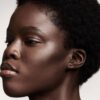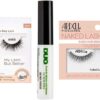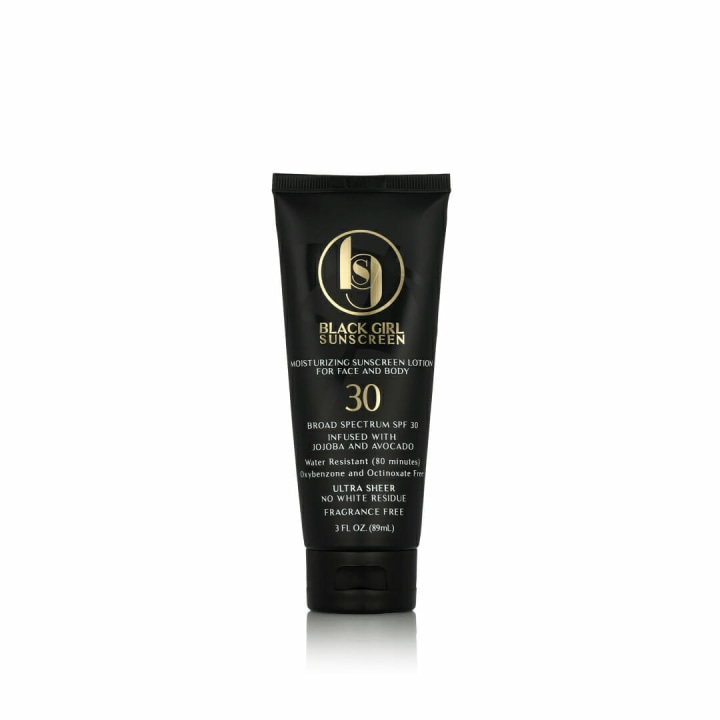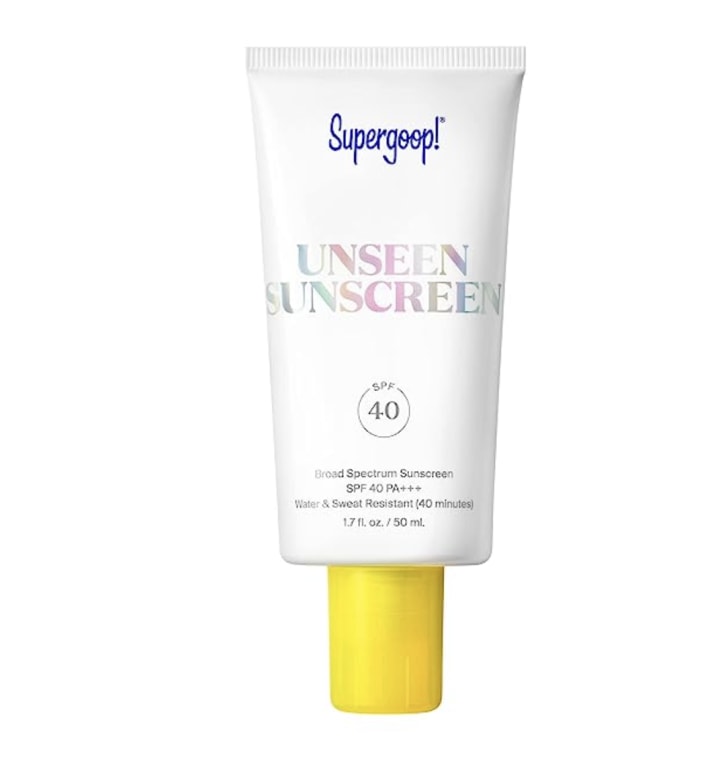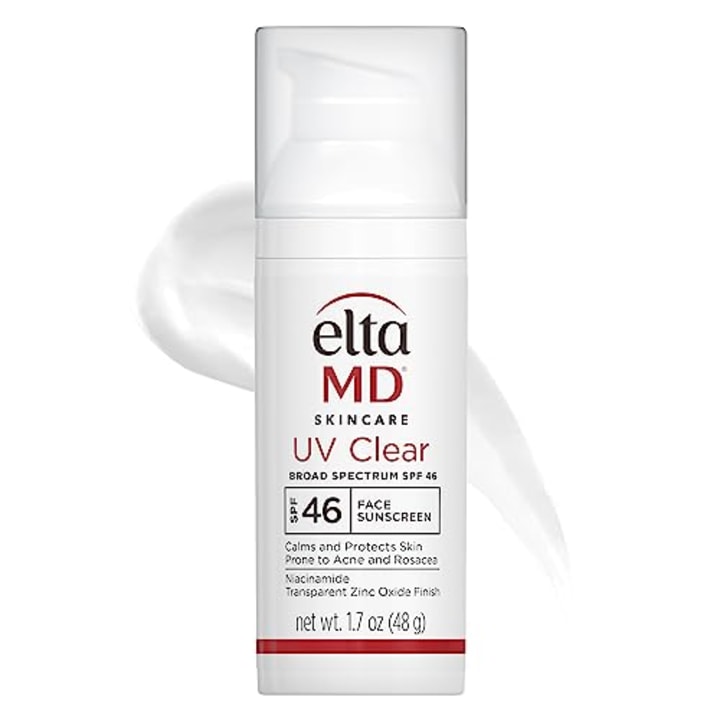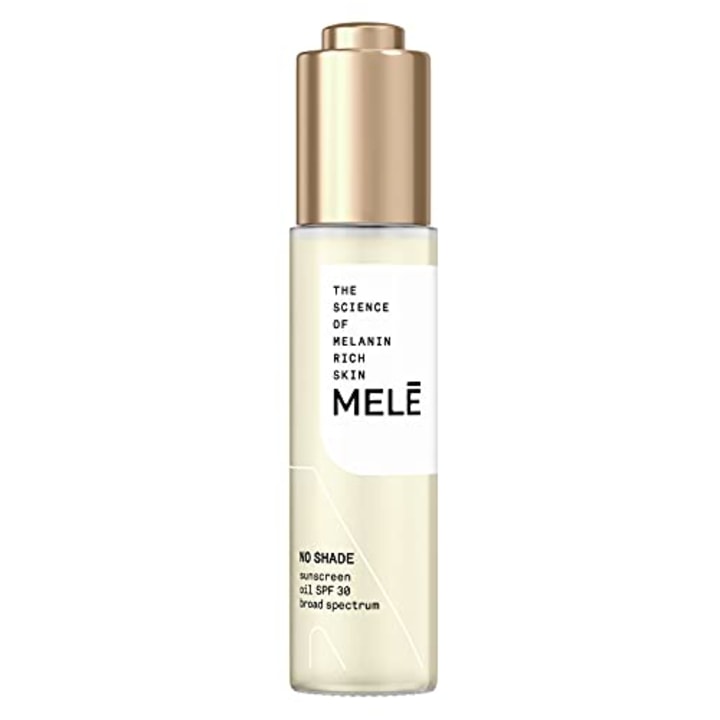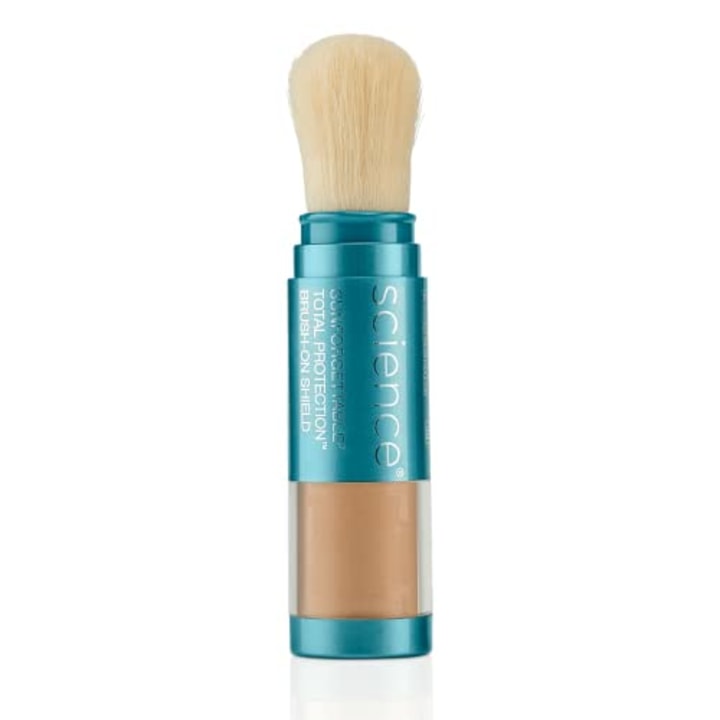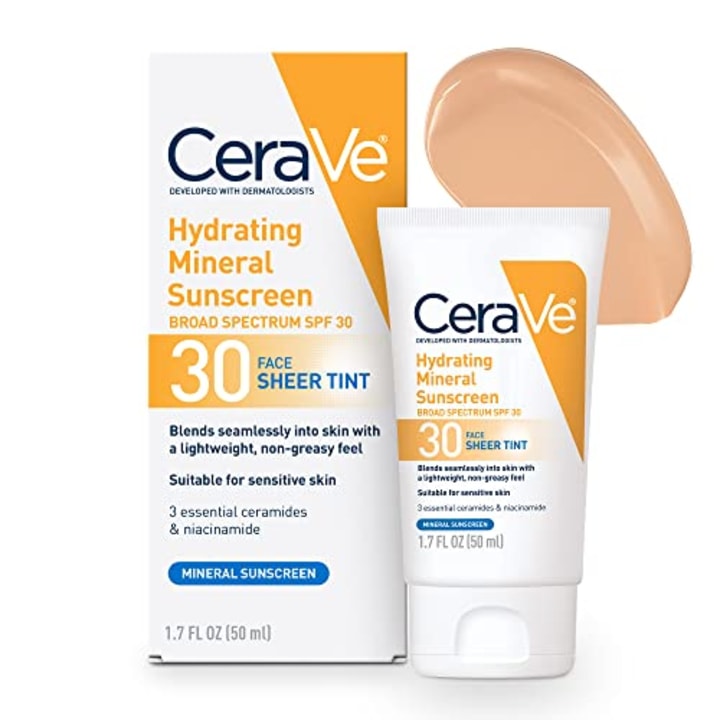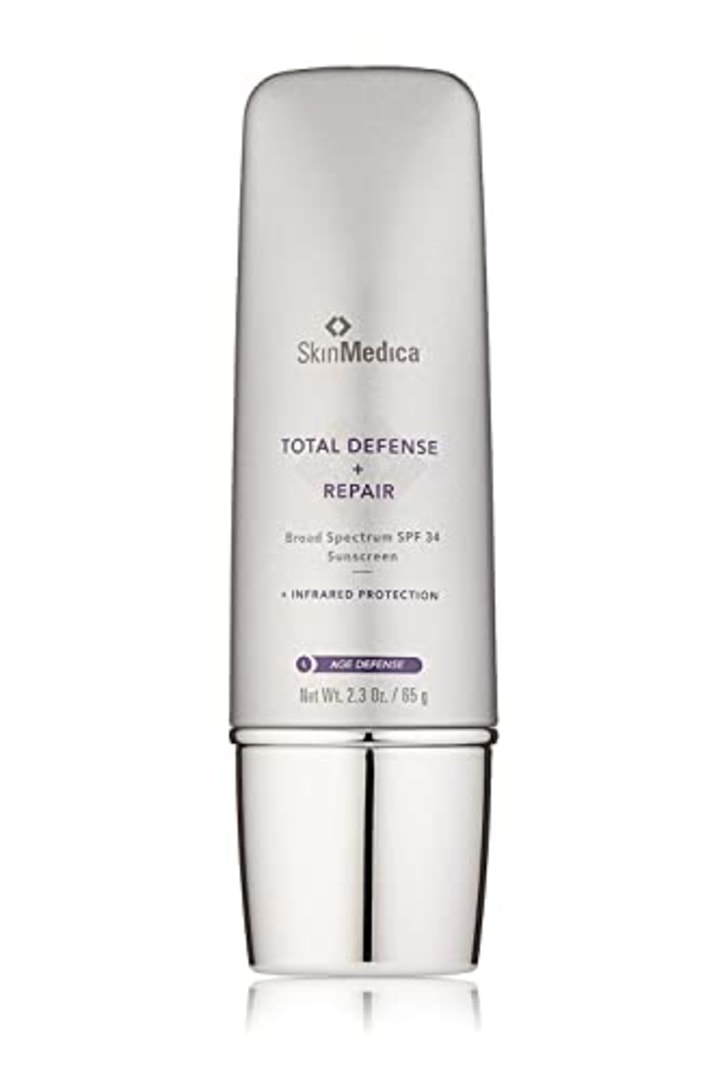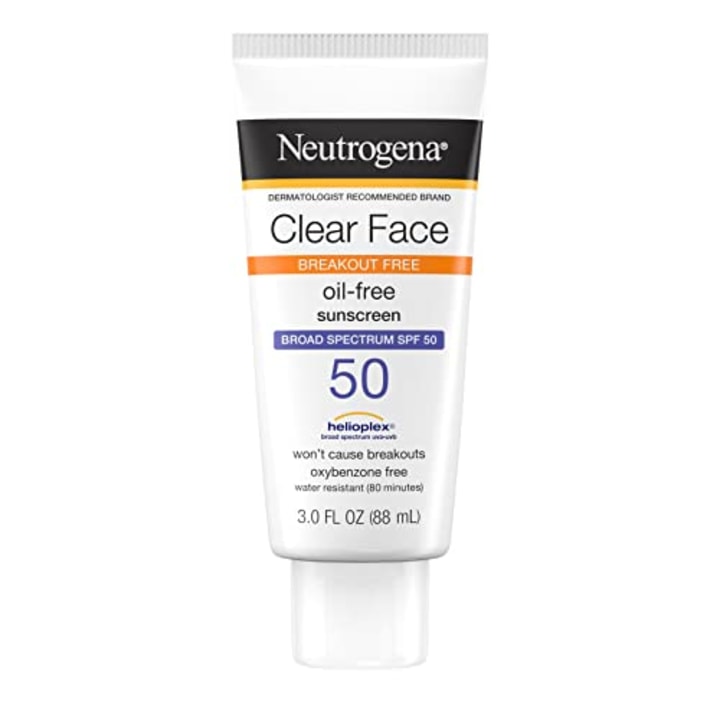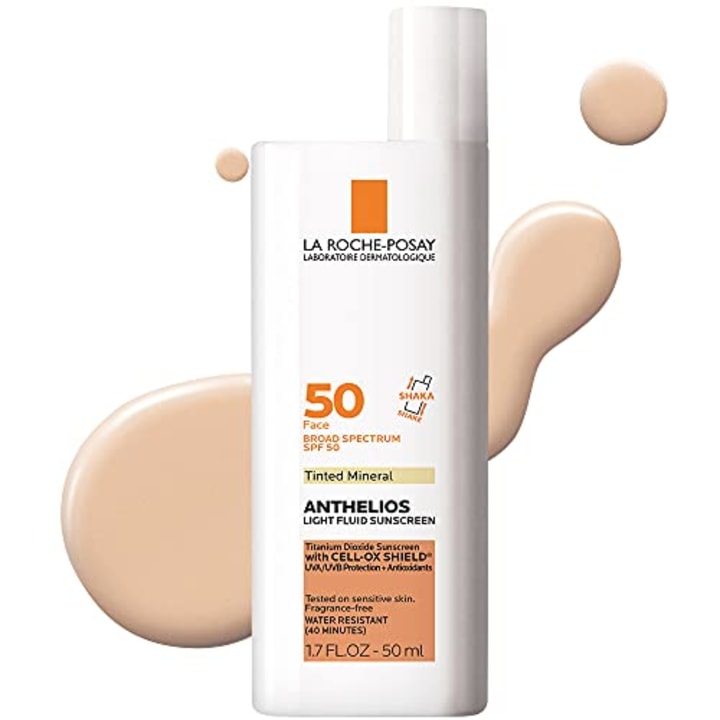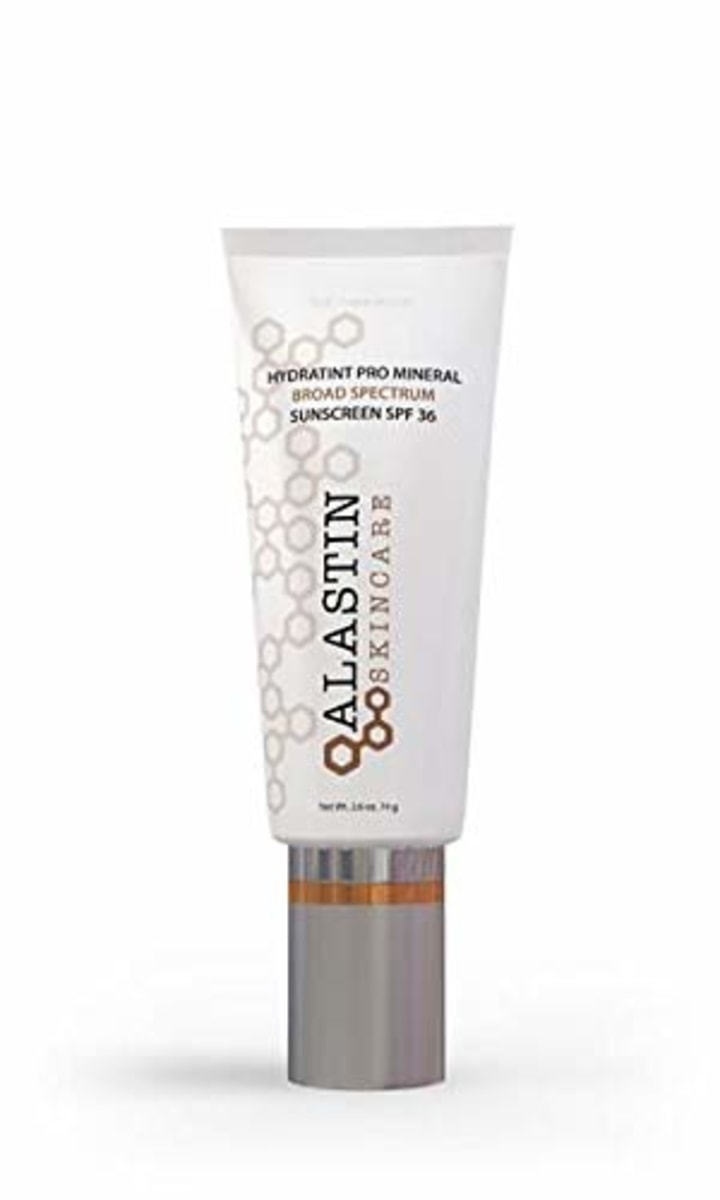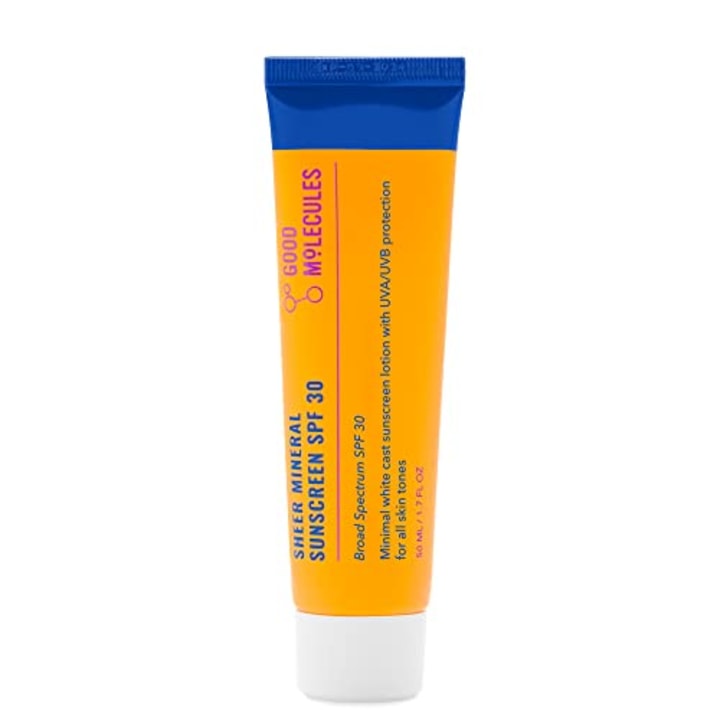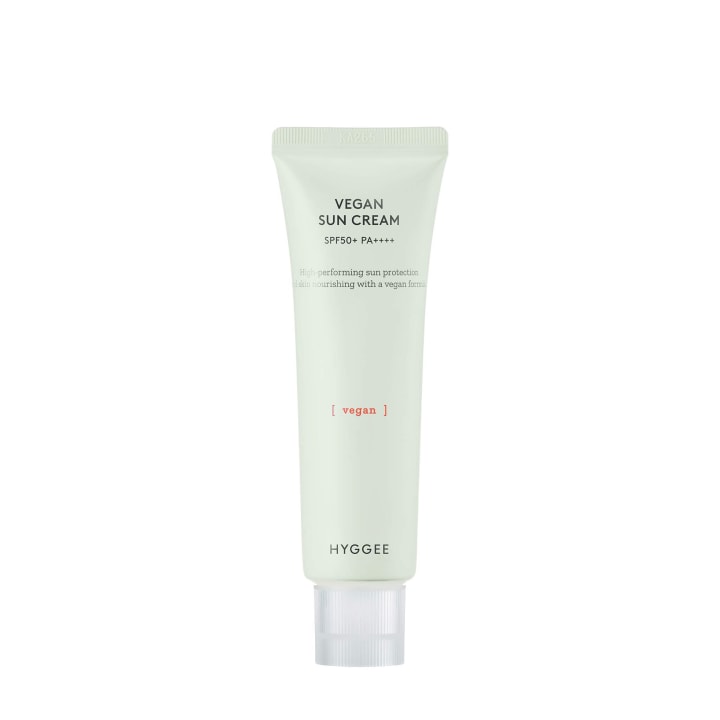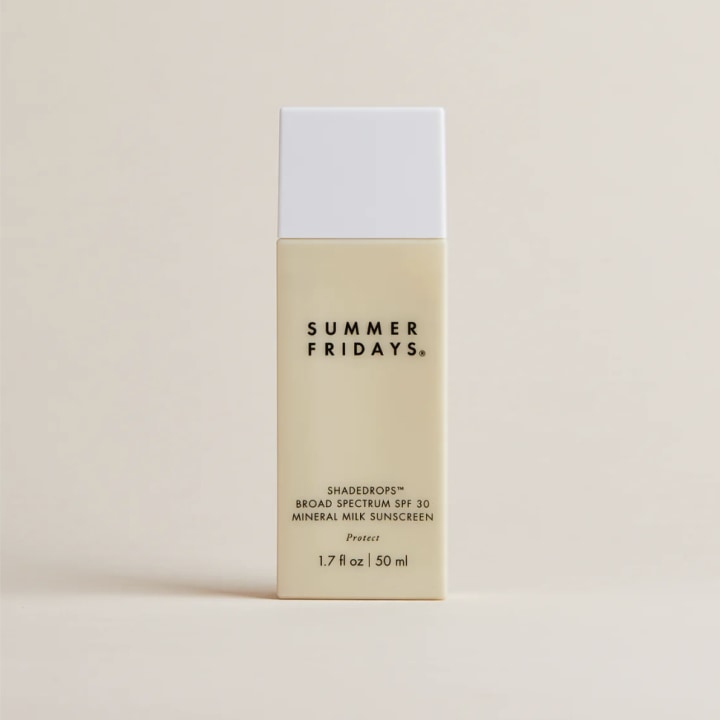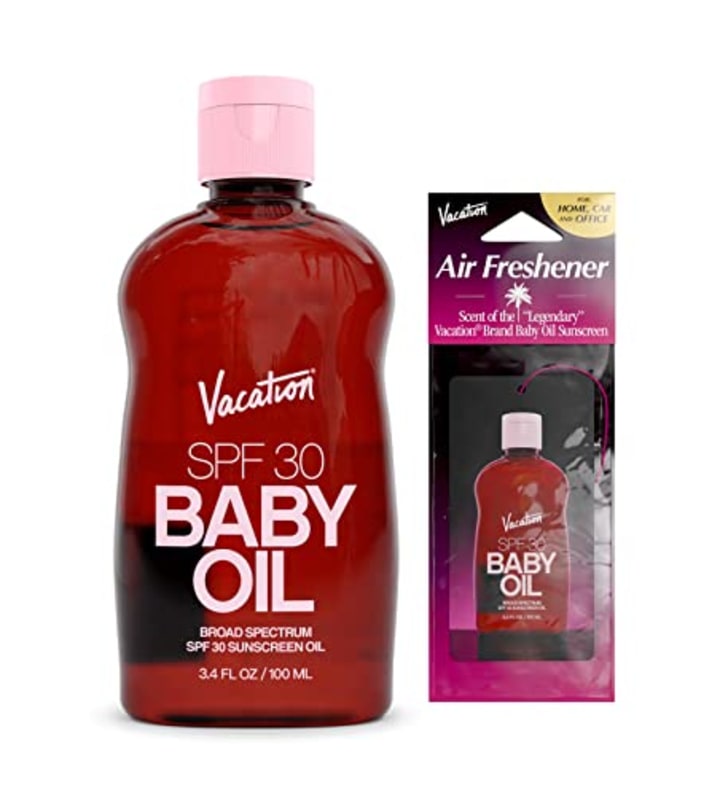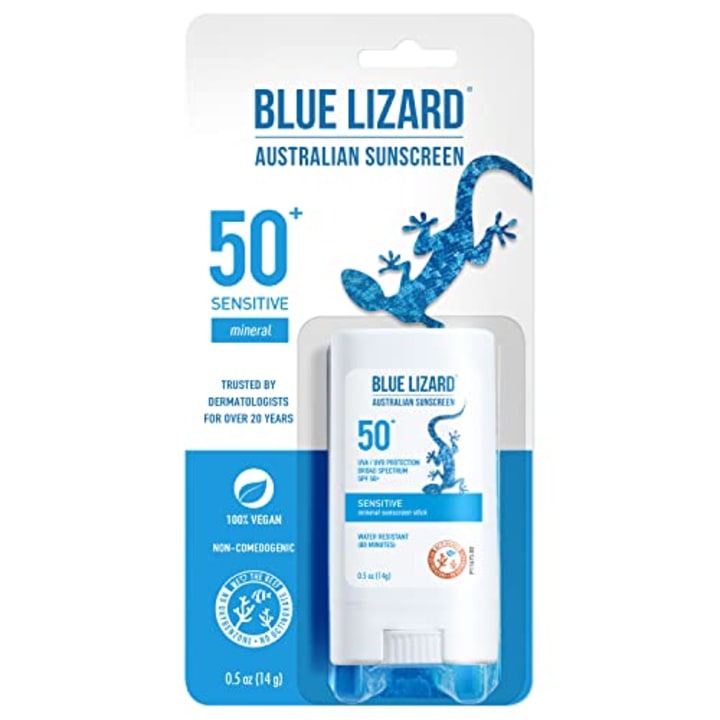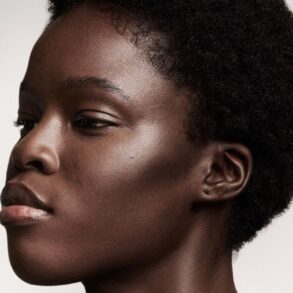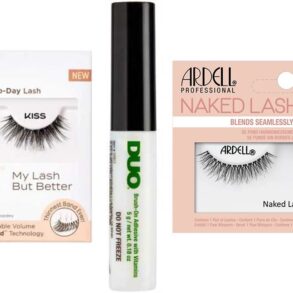Everyone should incorporate sunscreen into their daily skin care routine, even people with melanin-rich skin. Finding a sunscreen that doesn’t leave a white cast on your skin and that provides the necessary protection to prevent skin conditions and damage are the two biggest factors people with darker skin tones should keep in mind, according to our experts.
There are many chemical and mineral sunscreens, SPF lip balms and more that protect all skin tones and types, including acne-prone and sensitive skin. To help you find the best sunscreen for your skin that leaves little to no white cast, we spoke to experts about the best sunscreens for dark skin tones and highlighted their recommendations for the best ones to shop.
SKIP AHEAD The best sunscreen for dark skin | Whether or not sunscreen is needed | How to shop for sunscreen for dark skin | Mineral vs. chemical sunscreen | Tinted Sunscreen | How to effectively apply sunscreen for maximum benefits
Our top picks
How we picked the best sunscreen for dark skin tones
All sunscreens below have ingredients that protect and shield your skin from UVA rays which age the skin and UVB rays which burn the skin, according to experts we spoke to. The experts recommend you keep the following characteristics in mind:
- Type: There are two types of sunscreens: mineral and chemical. Mineral sunscreens protect your skin by sitting on the surface and reflecting the UV light using the active ingredients zinc oxide and titanium dioxide. Chemical sunscreens absorb the UV light with the help of chemical filters like oxybenzone, avobenzone and octisalate. Mineral sunscreens will typically leave a white cast on the skin, while chemical sunscreens do not, according to the dermatologists we spoke to.
- SPF protection: Experts recommend using a sunscreen with at least SPF 30 protection, which is in line with the minimum SPF rating recommended by the American Academy of Dermatology.
- Consistency: Consider the different sunscreen formulations, including lotions, gels, sprays, powders, oils and sticks, to fit your personal preferences and needs. Lotions and sticks, for example, are easy to spread and apply, while sprays and powders are great for reapplying throughout the day.
- Water resistance: Some sunscreens are water-resistant, but none are sweat- or waterproof, says board-certified dermatologist Dr. Michelle Henry. She recommends using a sunscreen that is water-resistant, though notes that if you are sweating or getting wet, you still need to reapply them as directed by the brand, she says.
The best sunscreen for dark skin
Below is a roundup of our experts’ favorite sunscreens for dark skin tones. We’ve also included some top-rated sunscreens and Select staff favorites we think you should know about. All of the sunscreens below have at least a SPF 30 rating
Black Girl Sunscreen SPF 30
Black Girl Sunscreen, a Black-owned brand that makes sunscreens specifically for people of color, comes recommended by all four dermatologists we spoke to. The sunscreen has SPF 30 protection and dries clear, so it doesn’t leave a white cast on the skin, according to the brand. It also has ingredients like jojoba and avocado oil to hydrate the skin and prevent irritation, according to Black Girl Sunscreen.
Type: Chemical | SPF: 30 | Consistency: Lotion | Water resistance: 80 minutes
Supergoop Unseen Sunscreen SPF 40
This chemical sunscreen has a gel consistency and broad-spectrum SPF 40 protection. “I like the Supergroup Unseen because it’s absolutely clear,” Henry says. “It’s almost like a primer, but you’re still getting SPF.”
The sunscreen leaves a natural finish and has ingredients like red algae and frankincense to help soothe and moisturize the skin, according to the brand. Supergoop offers another version of this sunscreen specifically for the body, which also has SPF 40 and is formulated with ingredients like olive leaf and fruit extracts to retain moisture and soothe the skin, according to the brand.
Type: Chemical | SPF: 40 | Consistency: Gel | Water resistance: 40 minutes
EltaMD UV Clear Face Sunscreen SPF 46
Suitable for all skin types, this sunscreen is fragrance-free and noncomedogenic, meaning it won’t clog pores. “It also has niacinamide, so it particularly helps with acne-prone skin,” says board-certified dermatologist Dr. Mona Gohara. The niacinamide also helps reduce redness to help minimize skin concerns including rosacea, according to the brand. The sunscreen also comes in a tinted versions with multiple shades and SPF ratings.
Type: Mineral and chemical | SPF: 46 | Consistency: Lotion | Water resistance: None
Mele No Shade Sunscreen Oil SPF 30
This Mele sunscreen oil is lightweight, non-greasy and formulated specifically for melanin-rich skin because it dries clear, according to board-certified dermatologist Dr. Mara Weinstein Velez. The Mele No Shade Sunscreen Oil was co-created with dermatologists of color to provide the recommended SPF to prevent UV damage and ensure no residue is left on the skin. The sunscreen oil is also free of parabens, alcohol which dries out the skin and mineral oil that can clog pores, according to experts.
Type: Chemical | SPF: 30 | Consistency: Oil | Water resistance: None
Colorescience Sunforgettable Total Protection SPF 50
This Colorescience tinted sunscreen comes recommended by both board-certified dermatologist Dr. Jeanine Downie and Weinstein because its powder form makes it easy to reapply throughout the day. You can choose from four shades and it has a hypoallergenic and noncomedogenic formula to avoid irritation and breakouts, according to the brand.
Type: Mineral | SPF: 50 | Consistency: Powder | Water resistance: 80 minutes
CeraVe Hydrating Mineral Sunscreen Face Sheer Tint SPF 30
This CeraVe mineral sunscreen looks great on dark skin because it has a sheer finish and its noncomedogenic, fragrance-free formula is suitable for those with sensitive skin, according to Henry. It also has ceramides, an emollient that helps improve the skin’s appearance and texture, according to an expert we previously spoke to in our guide to finding the best body lotions.
Type: Mineral | SPF: 30 | Consistency: Lotion | Water resistance: None
SkinMedica’s Total Defense + Repair SPF 34
Downie recommends this fast-absorbing sunscreen for individuals with darker skin tones because it minimizes the possibility of it leaving a white cast since the chemical formula blends easily into the skin. The sunscreen has SPF 34 and is suitable for all skin types, according to the brand. Apply this sunscreen as the last step of your skin care routine and reapply every two hours if you’re in direct sunlight, according to SkinMedica.
Type: Chemical | SPF: 34 | Consistency: Lotion | Water resistance: 80 minutes
Neutrogena Clear Face
This oil-free sunscreen is a great option for oily and acne-prone skin, according to Weinstein. It’s noncomedogenic and dries matte on the skin, so it doesn’t leave the skin looking oily or shiny throughout the day, according to the brand. The same product also comes in SPF 30 and a sport version suitable for all skin types with SPF 70 and is designed to resist sweating, water, rubbing and swiping, according to Neutrogena.
Type: Chemical | SPF: 50 | Consistency: Lotion | Water resistance: 80 minutes
La Roche-Posay Mineral Anthelios Tinted Sunscreen SPF 50
Suitable for all skin types including sensitive and acne-prone skin, this sunscreen is formulated with titanium dioxide, iron oxides and vitamin E to protect the skin, according to the brand. It’s also hydrating thanks to ingredients like the vitamin E which is a humectant that absorbs water and emollients including dimethicone that retain water and it looks good on dark skin because of the tint, says Henry.
Type: Mineral | SPF: 50 | Consistency: Lotion | Water resistance: 40 minutes
Alastin HydraTint Pro Mineral Broad Spectrum Sunscreen SPF 36
Suitable for all skin types since it’s noncomedogenic and hypoallergenic, this tinted sunscreen is a favorite of Weinstein’s because it’s hydrating and reduces the risk of a white cast. The sunscreen protects against both UV and blue light from screens .
Type: Mineral | SPF: 36 | Consistency: Lotion | Water resistance: 40 minutes
Good Molecules Sheer Mineral Sunscreen SPF 30
I use Good Molecules’ Sheer Mineral Sunscreen in my daily skin care routine and love that it has SPF 30, is not greasy and dries clear. It’s also fragrance-free, so it doesn’t irritate my eczema-prone skin, and has ingredients like hyaluronic acid to keep it hydrated. It’s also noncomedogenic, so it’s great for those with acne-prone skin.
Type: Mineral | SPF: 30 | Consistency: Lotion | Water resistance: None
Hygee Vegan Sun Cream SPF 50
“I’ve struggled with sunscreens leaving white casts, having super strong smells or just irritating my skin overall,” says NBC Page Mikhaila Archer. “This one is super gentle, blends in seamlessly and smells very fresh, too.” The sun cream has chemical filters that absorb UV radiation, according to the AAD. It also has ingredients like marine algae and beet root extract to soothe and hydrate the skin, according to the brand.
Type: Chemical | SPF: 50 | Consistency: Lotion | Water resistance: N/A
Summer Fridays ShadeDrops Broad Spectrum Mineral Milk Sunscreen SPF 30
I tend to reach for a mineral sunscreen as a personal preference, and I found that this product doesn’t leave a white cast on my medium complexion and doesn’t irritate my sensitive skin. The sunscreen has a natural finish and ingredients like squalane, a type of emollient, to help hydrate the skin, according to the brand.
Type: Mineral | SPF: 30 | Consistency: Lotion | Water resistance: None
Vacation Baby Oil SPF 30
Unlike a tanning oil, which will stimulate the body to produce more melanin, sunscreen oils work just as well as any other sunscreen by providing sun protection, according to our experts. For those wanting a nostalgic scent, this sunscreen oil with SPF 30 has the brand’s signature “baby oil accord” fragrance. It’s hydrating thanks to ingredients like jojoba oil and dries clear on all skin tones, according to the brand. It’s also free of mineral oil, so it’s a great option for those who worry about clogging their pores.
Type: Chemical | SPF: 30 | Consistency: Oil | Water resistance: None
Blue Lizard Sensitive Mineral Sunscreen Stick SPF 50
This mineral sunscreen can be good for dark skin tones because it dries completely clear, according to the brand. It’s also suitable for acne-prone skin since it’s noncomedogenic and is a great option for sensitive skin since it doesn’t have common irritants like dyes and fragrances, according to Blue Lizard. The brand also offers a mineral stick sunscreen for babies and one for children. This sensitive stick sunscreen has a 4.6-star average rating from 3,746 reviews on Amazon.
Type: Mineral | SPF: 50 | Consistency: Stick | Water resistance: 60 minutes
Do you need sunscreen if you have dark skin?
One of the biggest misconceptions is that people of color, especially those with a darker complexion, don’t need sunscreen. People with darker skin tones have more melanin, which is not only responsible for the skin’s pigment, but also provides SPF naturally by protecting skin cells. However, the protection you get from melanin alone is very minimal.
“Skin color is not sufficient protection from UV light to prevent burning or potential skin cancer in the future,” Henry says. Even though you may have melanin-rich skin, you’ll need external help in the form of sunscreen to avoid potential harm.
In fact, 90% of visible signs of aging come from unprotected daily sun exposure, according to the United States Environmental Protection Agency. These signs of aging can come in the form of wrinkles, but in black and brown skin tones it might appear as hyperpigmentation, according to Gohara. Blue light can also worsen hyperpigmentation, specifically in people with dark skin, according to Henry. To combat this, many sunscreen brands focus on protecting the skin against blue light by using iron oxides that act as a shield against visible light.
How to shop for sunscreen for dark skin
When shopping for sunscreen that’s suitable for darker skin tones, it helps to consider key factors like the sunscreen type and consistency. Our experts recommend thinking about the following when you’re shopping for sunscreen:
SPF 30
You should look for sunscreens with SPF 30 or higher regardless of skin tone, according to our dermatologists and the AAD. For days where you’re outside for long periods of time, you should consider sunscreens with at least SPF 50 protection, says Henry.
Type
Depending on your personal preference, you can choose between a mineral sunscreen (also known as a physical sunscreen) that will reflect UV light or a chemical sunscreen that will absorb it. To determine which is which, check the ingredient list. When shopping for a mineral sunscreen, look for active ingredients like zinc oxide, titanium dioxide, or both. Typically when shopping for a chemical sunscreen, you might find one of the following chemical filters on the ingredient list: oxybenzone, avobenzone, octisalate, octocrylene, homosalate and octinoxate.
Consistency
The consistency you choose is based on your personal preferences. Keep in mind that lotions, gels and oils are easy to rub into the skin and distribute an even layer of the product, according to our experts. Sprays are easier on children but should be rubbed in to avoid a speckled, uneven application. Powders help reduce shine for oily skin and are also easy to reapply on top of makeup. Sticks can be used for the base application, reapplication and are an option for the face area specifically around the eyes, according to the AAD.
Water resistance
No sunscreen is sweat-proof or waterproof, according to Henry. However, some are water-resistant, which refers to how long the sunscreen will stay on and remain effective even after you get wet, according to the AAD. But even when a sunscreen is labeled water-resistant, you will still need to reapply the sunscreen after the allotted time listed on the product label, says Henry. For example, if the sunscreen has 60 minutes of water resistance, you will need to reapply after those 60 minutes are up. If your favorite sunscreen does not have any water resistance, Henry recommends adding another sunscreen on top that is water-resistant if you engage in activities that will make you sweat or if you’ll come in contact with water.
Skin type
Our experts recommend a mineral sunscreen if you have sensitive skin. You should also avoid fragrances and other potential irritants if your skin is sensitive, and when possible opt for a hypoallergenic sunscreen, according to our experts. Dry skin should look for ingredients like hyaluronic acid that helps hydrate the skin to provide moisture, according to an expert we previously spoke to in our guide on hyaluronic acid. Those with oily and acne-prone skin should keep an eye out for sunscreens labeled noncomedogenic because they are typically free of ingredients that would normally clog pores.
Tint
Some sunscreens have a tint to match your skin color, making it an option for darker skin tones looking to avoid a white cast. Tinted sunscreens will typically have iron oxide, which adds another layer of protection from UV rays or blue light emitted from your screens, says Weinstein.
Should you use mineral or chemical sunscreen on dark skin?
Both mineral and chemical sunscreens come with their own benefits and limitations for those with darker skin tones — the choice is ultimately up to your preferences, according to our experts.
Mineral sunscreen, also known as physical sunscreen, has either zinc oxide or titanium dioxide (sometimes both) as its active ingredients. It sits on top of the skin and creates a barrier that reflects harmful UV rays. Chemical sunscreens, on the other hand, protect the skin by using chemical filters like oxybenzone and octinoxate to absorb UV rays and convert them into heat.
Historically, many individuals of color used chemical sunscreens because the formulas didn’t leave behind an ashen white appearance on the skin, Henry says. This is because mineral sunscreens don’t get absorbed into the skin so the chunky white minerals sat on top of the skin and left the white residue. However, today, many mineral sunscreens break down the minerals into very fine particles, which eliminates the harsh white cast that was previously seen with older formulas, she says.
Mineral sunscreens generally provide more protection against harmful visible light indoors compared to chemical sunscreens, according to Gohara. The visible light exposure comes from common household items like light bulbs and computer screens. If not protected, exposure to this light can lead to conditions like melasma, she says. Melasma, a skin condition that causes discolored patches on the face, is mostly seen in women who have medium to dark skin tones, according to the American Academy of Dermatology Association.
Is tinted sunscreen better for dark skin?
“Tinted mineral sunscreens tend to blend a little bit better on darker skin tones,” Weinstein says.
With newly formulated sunscreens, there are more options to choose from if you prefer a mineral sunscreen from a chemical one.
Weinstein says tinted options provide the same amount of protection from UVA and UVB rays as non-tinted sunscreens, and they protect the skin from visible light because they’re formulated with 3% iron oxides, which is the most effective amount, Weinstein says.
How to apply sunscreen on dark skin
Appropriately applying sunscreen is the key to getting the most out of your SPF. Henry recommends applying a sunscreen lotion or cream on top of your daily moisturizer — this creates a uniform application across your skin whereas a spray or other form may miss a spot.
For the body, Weinstein recommends a lotion or cream because it’s easier to rub into the skin. “A spray can leave us speckled, it’s not necessarily an even application,” she says. For children, a spray may be easier to apply and you should rub the product into the skin quickly. When using sunscreen for the whole body, she recommends using a shot glass full of sunscreen with reapplication every two hours.
For the face, Weinstein recommends a lotion, oil or stick sunscreen because it can create an evenly distributed layer of protection. An easy trick to ensure you’re applying enough sunscreen is to place a line on your pointer finger, middle finger and ring finger and apply that amount to your face. To make sure you’re evenly applying a stick sunscreen, you should swipe it across your face back and forth three times, Weinstein says.
How often should you reapply sunscreen on dark skin?
In line with all of our experts’ guidance, you should reapply sunscreen every two hours. If sweating or swimming, you may have to reapply earlier based on the water resistance of your sunscreen of choice which can vary from 40 to 80 minutes. Sprays, misting oils and brush-on powders are usually easier to reapply throughout the day compared to other types of sunscreens, experts told us.
Meet our experts
At Select, we work with experts who have specialized knowledge and authority based on relevant training and/or experience. We also take steps to ensure all expert advice and recommendations are made independently and without undisclosed financial conflicts of interest.
- Dr. Jeanine Downie is a board-certified dermatologist with Image Dermatology in Montclair, New Jersey. Her areas of research include photoaging, skin cancer, cosmeceuticals and injectables, cosmetic dermatology, skin of color and sun protection.
- Dr. Michelle Henry is a board-certified dermatologist with the Skin & Aesthetic Surgery of Manhattan in New York City. Her areas of research include high-risk skin cancer treatments, aesthetic surgery and treating skin of color. She specializes in Mohs micrographic and reconstructive and cosmetic surgery.
- Dr. Mona Gohara is a board-certified dermatologist with the Dermatology Physicians of Conneticut and associate clinical professor at Yale University. Her areas of research include medical and surgical dermatology as well as skin of color.
- Dr. Mara Weinstein Velez is a board-certified dermatologist and assistant professor with the University of Rochester Medical Center. Her areas of research include cosmetic dermatology, skin of color, scarring, hair growth.
Why trust Select?
Bianca Alvarez has been covering self care and beauty topics for a year. For this piece, Bianca interviewed four dermatologists with various backgrounds and researched many sunscreens on the market. We recommended products the dermatologists shared with us, met their shopping guidance and ones we have tried ourselves.
Catch up on Select’s in-depth coverage of personal finance, tech and tools, wellness and more, and follow us on Facebook, Instagram, Twitter and TikTok to stay up to date.
This post was originally published on this site be sure to check out more of their content.


